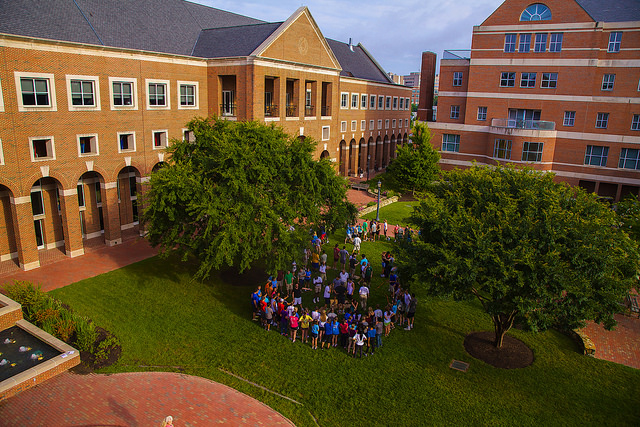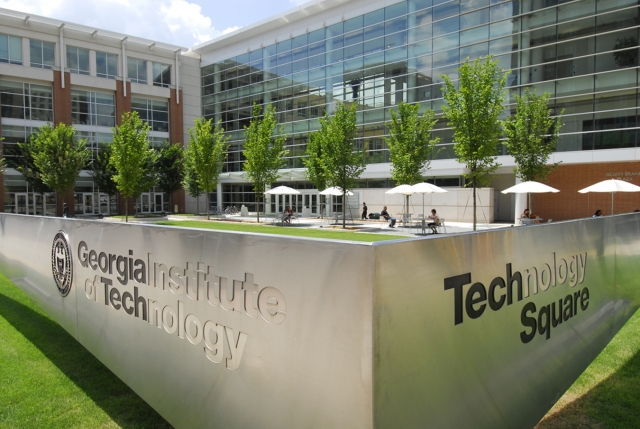Every business school conjures up certain images. Want prestige? That’s the Wharton brand in a nutshell. How about a rigorous curriculum? Virginia is for scholars (and lovers). A deeper purpose? Well, that’s Notre Dame’s specialty. Such images reflect a school’s identity. In the minds of employers, they tag a school’s value in the marketplace.
This value is ever-changing, however. Rankings may reveal higher pay or placement, but they are often the product of teaching excellence, innovative programming, intensive support, groundbreaking partnerships, engaged alumni, and robust activities. Such forces drive rankings and results – even when they cannot be measured by conventional means. In the long term, these forces lay the groundwork for business innovation. In the short term, they build a momentum that increases the value of a school’s degree.
Which business schools are making the investments that will boost future opportunities for their graduates? Which data slivers reaveal a program on the move? Each year, Poets&Quants looks at 10 undergraduate business programs that are setting themselves apart – and why. Which schools are poised to break out? Which ones continue to act as role models? Here are our 10 business schools to watch in the coming year.
(Editor’s Note: These schools are not ranked in any order)
University of North Carolina (Kenan-Flagler)
Holistic … global … experiential: The Kenan-Flagler Business School has it all. Popular among students and alumni alike, Kenan-Flagler climbed nine spots in P&Q’s 2017 undergraduate ranking to place 7th overall. The reason? The school hit on every marker.
For starters, it isn’t easy to get admitted. Just 1 in 10 applicants are able to do that – and nearly 84% graduated in the top 10% of their class. When they graduate, the perks are many. Kenan-Flagler business majors earn, on average, $72,514 in total compensation to start. Take that out five years and graduates generate a $235K return on investment – second only to James Madison University. Bump that up to 15 years and the number climbs to $902K. Oh … and 97.64% of Kenan-Flagler grads land jobs within three months of graduation – a testament to the fact that 96% completed internships during their four years.
Inputs and outcomes aside, the program earns high marks in several student and alumni surveys conducted by P&Q in 2017. Notably, alumni gave Kenan-Flagler the second higher score when asked if the “business degree was worth its cost in time and tuition” – just .01 of a point behind the leader. The school also finished among the top performers when alumni were asked about their overall experience, networking, skill development, career advising, and preparation for the workforce.
In addition, over 70% of business majors completed a global immersion – one of the highest percentages among American business programs. These overseas excursions ranged from consulting projects to studying at a partner institution. Much of this stems from Chapel Hill’s Inclusive Global Leadership program, a requirement that focuses on exposing students to overseas global practices and developing cross-cultural competencies through intensive classroom study and hands-on opportunities. In fact, experiential learning is one of the program’s hallmarks, which is exemplified by the STAR (Student Teams Achieving Results) program. Here, students band together in 5-6 member teams – including MBA students – to perform consulting projects sponsored by Fortune 500 firms and nonprofits. Along with gaining professional experience in a real world environment, the program also enables students to build their network with employers and peers alike.
“Through this experience, I was able to immerse myself in a challenging work environment with individuals who already had industry experience and a client who faced a legitimate problem for us to address, as opposed to typical coursework of case studies and textbook problems,” writes one 2015 graduate.
It also reinforced one of the defining aspects of the Kenan-Flagler experience: teamwork. “We were constantly engaged in project work in every class I attended in the business school,” adds another graduate. “This provides an invaluable experience as every situation I have ever faced in the working world has required me to be part of and work cohesively with a team.”
Georgia Tech (Scheller)
How is this for a debut? This year, Scheller entered P&Q’s 2017 undergrad business school ranking at 11th, vaulting traditional powers like Texas, Michigan and Villanova. So what’s behind this splash?
For one, Scheller has carved out a special niche for itself in the technology and entrepreneurship space. In this program, for example, you’ll find the Denning Technology and Management Program (T&M), which pairs business, computer science, and engineering students to tackle the big problems in an interdisciplinary fashion. Similarly, students aren’t just studying financial statements or operational bottlenecks. They’re also taking courses in leading edge topics like nanotechnology and machine learning. Even more, the school sits across the street from Coda Tech Square, a 1.4-million-square-foot innovation hub that boasts startups, venture capital firms, and tech incubators. It even houses offices for Fortune 500 stalwarts like AT&T and Delta Airlines.
“There is the buzz of innovation centers and startups around the school that empowers the students to begin creating right away,” says Jonathan Clarke, who serves as the associate dean of undergraduate programs at Scheller. “The new innovation concentration is our way of equipping our students with skills that are set to become even more sought after.”
In recent years, Scheller has garnered plenty of buzz, with a parent school that ranks among the leading feeders to Silicon Valley. Thirty-one-percent minority, the program is known for more than just tech. Notably, the curriculum leans heavily on hands-on learning thanks to a wealth of Fortune 500 and middle market firms in the Atlanta area. “We had a number of opportunities to interact with companies in the area, as well as online experimental opportunities,” writes one 2015 graduate. “The sum of these experiences and feedback from real companies helped me understand what businesses were looking for in ideas and a worker.”
Employers have obviously liked what they’ve seen. Ninety-seven percent of its graduating class received internships. How about these numbers? Going in, 86% of Scheller business majors ranked among the top 10% of their high school classes. Leaving, just 33% graduated with any debt, with the average being $24,830. With high alumni survey scores in key areas like academic advising, networking, and overall experience, Scheller could evolve into a top 10 fixture in the coming years.














Questions about this article? Email us or leave a comment below.